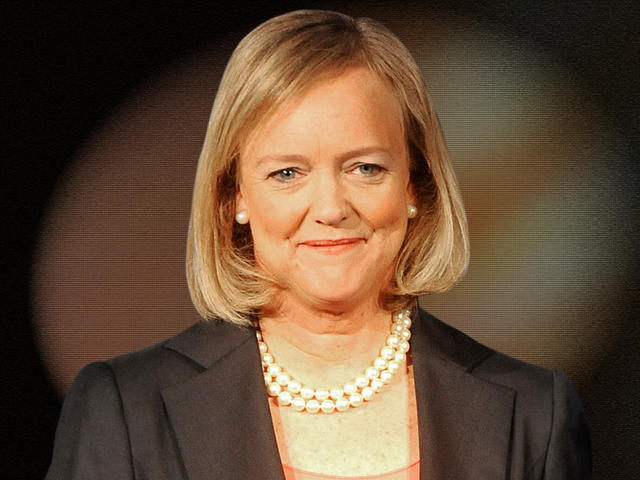Meg Whitman could become California's Margaret Thatcher

The gubernatorial race in California has escalated, and now Jerry Brown and Meg Whitman are locked in one of the more memorable duels California has recently seen. However, unlike in other races, where cultural or social issues often provided most of the ammunition, in this case the battle is one of raw economics.
Brown has cast himself as the crusading class warrior with an interest in preserving the working man’s interests, whereas Whitman has sold herself as the brusque reformer who could save the State - long on ideas, but short on empathy. In short, Meg Whitman is selling herself as California’s Margaret Thatcher.
First, with respect to unions, Whitman has entered a daring rhetorical game of pitting public sector unions against private sector unions. This stance is more than strategic, however – Whitman claims that largesse that flows to public sector unions directly deprives private sector unions of their due by removing money from the economy, thus depriving bosses of the ability to pay union wages.
Given the strength of California’s public sector unions, this stance can end one of two ways for Whitman – either she can go down with the Thatcheresque title of having won in the teeth of the public sector unions, or her campaign can be written off as suicidal. Either way, it’s a daring move, and a tactic that foreshadows her tactics as Governor.
And then there is the policy book which, much like Thatcher’s administration, makes economic growth the centerpiece of its approach with a heavy focus on property ownership. Whitman offers a boon to California’s currently struggling but otherwise vibrant real estate market by offering a $10,000 tax credit for home buyers, while offsetting it with a proposal to make the legislature part-time (thus reducing opportunities for costly legislation), and capping state spending by tying it to state GDP. This latter approach would be especially important for California, as it would offset the dangers of ballot initiatives that spend excessive amounts of money.
There are good arguments on both sides as to whether these policy ideas will work. One element that is missing from Whitman’s platform that was key to the Thatcherite success was the willingness on Thatcher’s part to gut spending by cutting existing programs, rather than simply capping them. If Whitman plans to do this, she hasn’t given any indication, but then perhaps campaign politics is the wrong arena for such a thing.
Still, the accusation can be made that the cap is a gimmick, and the tax credit for home-buying will, when paired with Proposition 13, artificially expand the housing market. One can certainly count on Jerry Brown’s campaign to make at least one of these claims, assuming it can reconcile the inherent fiscal conservatism of either with its populist bent.
Ultimately, Whitman’s campaign is still a work-in-progress, and the comparison to Thatcher may be premature. However, her similarities to the great British leader could give Americans some sense of hope, given that Britain started Thatcher’s tenure much the same way that California would begin Whitman’s.
Thatcher was up to the challenge. Is Whitman? The voters will decide.




